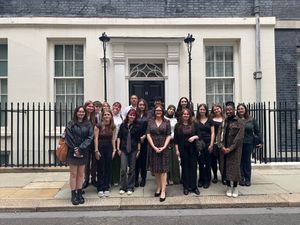Council set to pay deposits to landlords to help low-income residents secure housing
Residents on low incomes could get their property deposit paid by Stafford Borough Council as part of plans to make it easier to secure private rented housing.
Households currently face an average wait of seven months for a one-bedroom property if they go on the council’s housing list – and it can cost the authority more than £10,000 to house a person in temporary bed and breakfast accommodation during this time.
Around £1,300 is needed up front to start a private tenancy in Stafford and the average rent in the area costs £525 per month.
Stafford Borough Council currently offers a deposit guarantee scheme to help residents on low incomes to secure private rented accommodation. But a report to this month’s cabinet meeting revealed it was not attractive to private landlords and there had been a low take up.
Now the council is set to offer cash deposits through a Government-backed tenancy deposit scheme. It has earmarked £30,000 for private rented sector access from its Homelessness Prevention Grant funding.
A cabinet report said: “In the year 2019-2020, Stafford Borough Council’s Housing Options team assisted 59 people to access accommodation in the private sector; 28 were for homelessness prevention and 31 were homelessness relief. This compares to 161 people who were housed in social housing and 55 in supported housing.
“There are significant barriers for households with complex needs who cannot access social housing and have to wait in unsatisfactory accommodation whilst protracted and sometimes failed negotiations with landlords take place. This waiting can have an adverse effect on the client’s health and wellbeing, including mental wellbeing, and make rehousing more difficult.
“The Covid-19 pandemic has brought additional pressures on many households nationwide. A cohort of ‘hidden homeless’ were initially brought to the forefront of homeless service provision during the first lockdown; sofa surfers or those staying with family and friends in insecure accommodation who are at risk of rough sleeping.
“High levels of demand for rehousing due to relationship breakdown have continued throughout the past 12 months. In the near future, when the ban on evictions is fully lifted, a significant increase in homeless presentations is anticipated as a result of rent arrears, both from circumstances prior to the pandemic, but also stemming from Covid-related impacts such as job losses and reduced working hours.”
Cabinet members approved the Private Rented Sector Access Policy on Tuesday, May 4.
Councillor Jeremy Pert, cabinet member for community and health, said: “The scheme aims to assist people in housing need and on low incomes, and households facing homelessness, to secure the accommodation they need within the private rented sector.
“For the borough council’s housing team to access the housing needs for residents in the long term we need the housing market to work properly – both the social landlord sector and the private rental sector. Sometimes the private rental sector does not work as well as it could, which adds to our costs as a council, and means a smaller number of homes are available to our residents than could have been the case.
“By making the changes proposed to the existing private sector access policy we are hoping to secure greater access to the private rented sector and lower temporary accommodation costs, which will no doubt please the cabinet member for finance.
“In my view it is welcomed and timely, because in the post-Covid world we are expecting a greater demand on the borough council’s housing services. Opening up greater supply will be useful.”
Councillor Mike Smith, cabinet member for resources, also welcomed the scheme. He said: “It addresses the needs of the vulnerable and also addresses the needs of the landlords.”




